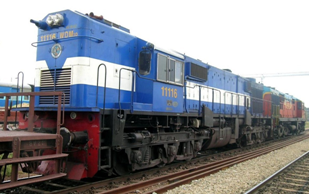The policy paralysis in Indian railways
Indian railway is the single largest public sector employer and an extremely important fuel of Indian economic growth. It serves as a lifeline of the country spread as blood arteries. Though the sorry state of this sector is well explained because of inadequate finances, policy paralysis and others making it an unprofessionally run organization. The jubilant leadership at the centre and the ministry (modi-prabhu duo) flared the hopes of the overhaul of the sector and the country is awaiting Railway budget with much anticipation.
Policy Paralysis
The two segment of railways – the passenger and the freight. The freight segment traditionally been used to cross-subsidise the passenger segment. It makes the freight charges in the country among the highest in the world, while the passenger fare the minimum. The revenue generated from the freight segment is diverted to subsidize passengers. As a result neither the freight infrastructure nor the passenger amenities improved in these years.
Indian railways require $340 billion in order to keep its project and reform moving. In the last 67 years the country added only 11000 km of railway tracks, which in contrast to 14000 km developed by china in the period 2006-2011.
Revenues grew merely by 2.8% compounded annual growth as compared to cost rising at 11% compounded annual growth rate. More than 60% of the projects languishing at various stages of implementation due to financial non-viability.
Overly burdened railway board, managing the dual task of implementation and policy making . Also an over-centralized bureaucracy is hard to break.
Proposal in the past
Anil kakodkar committee earlier recommended on the overhaul in the structure of railway board. The panel opined a complete revamp of the board along the different department lines such as engineering, traffic, finance, electrical etc. it would smoothen the process and an efficient administration would reduce the red-tapism and delayed clearances and projects. Sam pitroda panel in 2012 sought the same division of the railway board. It further went on to scrapping of the position of chairman to railway board and replacing it with chief executive officer. Also it suggested appointment of an ombudsman for all private-public partnership projects.
Rakesh Mohan committee setup in 2001 recommended separate freight and passenger operations. Recently Government of India appointed the Bibek Debroy panel to undergo exploration of the policy paralysis to revamp the sector whose recommendation is awaited.
The new concept of high-speed train and bullet train though would bring world class infrastructure in India, but is to be noted that over-emphasis should simultaneously be given to the normal trains where the mass population travels daily and which remains deprived of basic amenities at train and platform.


